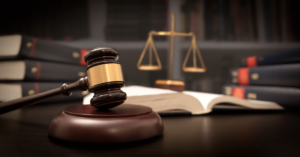INTRO:
Two class action lawsuits, one for trespass to chattel and one for deceptive business practices, have been filed against Apple after it acknowledged slowing down older iPhones to avoid unexpected shutdowns caused by batteries that can’t supply the necessary power for new features.
FACTS : Two individuals from Los Angeles, with iPhone 7s, have filed a lawsuit against Apple for trespass to chattel and breach of implied contract regarding the slowing down of their iPhones due to software updates. The individuals from LA allege that Apple never asked for consent to operate their iPhones at lesser speeds and thus the Ps have suffered a loss in value of their iPhones and are entitled to compensation. At least five individuals from Chicago have filed a lawsuit against Apple alleging that Apple purposefully slowed the phones down to fraudulently induce consumers to buy newer iPhone models. Apple while it has admitted to slowing down older model speeds, argue that it is naturally due to the aging of batteries.
ISSUES:
- Los Angeles Plaintiffs:
- Apple never asked for consent to have iPhone operating at lesser speed
- P suffered a loss in value of iPhones and are entitled to compensation
- Apple breached implied contract
- Trespass to chattel
- Chicago Plaintiffs:
- Apple purposefully slowed down performance speeds of iPhone 5-7 and perhaps others by “wreak[ing] havoc on batteries within these model devices.”
- Apple didn’t tell consumers the shutdown problem could be avoided w/ the purchase of a new batter and actual purpose of slowdown was to fraudulently induce consumers to buy newer iPhone models
- Apple (Defendants):
- Apple said it was not intentional but rather a natural response of aged Lithium-ion batteries
LAW:
TRESPASS TO CHATTEL:
Trespass to chattel is a particular type of trespass whereby a person has intentionally interfered with another person’s lawful possession of a chattel. A chattel refers to the movable or immovable personal property of an individual except real estate. Generally, the basic elements of a claim of trespass to chattels are lack of an owner’s consent to trespass, interference with possessory interest, and intention of the trespasser. In an action for trespass to chattel, a plaintiff has to show that s/he had either actual or constructive possession of goods at the time of the trespass[i]. It has also to be shown that there was an unauthorized, unlawful interference or dispossession of the property. Actual damage is not necessarily a required element of a trespass to chattels claim[ii]. A person may be said to have possession of a chattel if s/he has physical control of the chattel with the intent to exercise such control on one’s own behalf, or on behalf of another.
https://trespass.uslegal.com/trespass-to-chattel/
BREACH OF IMPLIED CONTRACT:
Consists of obligations arising from a mutual agreement and intent to promise where the agreement and promise have not been expressed in words. Such contracts are implied from facts and circumstances showing a mutual intent to contract, and may arise by the conduct of the parties. A contract implied in fact is a true contract. To establish the existence of an implied in fact contract, it is necessary to show: an unambiguous offer, unambiguous acceptance, mutual intent to be bound, and consideration. However, these elements may be established by the conduct of the parties rather than through express written or oral agreements.
(ILLINOIS) CONSUMER FRAUD AND DECEPTIVE BUSINESS PRACTICES ACT:
The Illinois Consumer Fraud and Deceptive Business Practices Act
(“IFCFA”) states:
Unfair methods of competition and unfair or deceptive acts or practices, including but not limited to the use or employment of any deception, fraud, false pretense, false promise, misrepresentation or the concealment, suppression or omission of any material fact, with intent that others rely upon the concealment, suppression or omission of such material fact . . . in the conduct of any trade or commerce are hereby declared unlawful whether any person has in fact been misled, deceived or damaged thereby.
815 ILCS 505/2
(INDIANA) DECEPTIVE CONSUMER SALES ACT:
(a) A supplier may not commit an unfair, abusive, or deceptive act, omission, or practice in connection with a consumer transaction. Such an act, omission, or practice by a supplier is a violation of this chapter whether it occurs before, during, or after the transaction. An act, omission, or practice prohibited by this section includes both implicit and explicit misrepresentations.
(b) Without limiting the scope of subsection (a), the following acts, and the following representations as to the subject matter of a consumer transaction, made orally, in writing, or by electronic communication, by a supplier, are deceptive acts: . . .
(2) That such subject of a consumer transaction is of a particular standard, quality, grade, style, or model, if it is not and if the supplier knows or should reasonably know that it is not . . .
(5) That replacement or repair constituting the subject of a consumer transaction is needed, if it is not and if the supplier knows or should reasonably know that it is not . . .
(12) That the replacement or repair constituting the subject of a consumer transaction can be made by the supplier for the estimate the supplier gives a customer for the replacement or repair, if the specified work is completed and:
(A) the cost exceeds the estimate by an amount equal to or greater than ten percent (10%) of the estimate; (B) the supplier did not obtain written permission from the customer to authorize the supplier to complete the work even if the cost would exceed the amounts specified in clause (A); (C) the total cost for services and parts for a single transaction is more than seven hundred fifty dollars ($750); and (D) the supplier knew or reasonably should have known that the cost would exceed the estimate in the amounts specified in clause (A).
(13) That the replacement or repair constituting the subject of a consumer transaction is needed, and that the supplier disposes of the part repaired or replaced earlier than seventy-two (72) hours after both:
(A) the customer has been notified that the work has been completed; and (B) the part repaired or replaced has been made available for examination upon the request of the customer.
(14) Engaging in the replacement or repair of the subject of a consumer transaction if the consumer has not authorized the replacement or repair, and if the supplier knows or should reasonably know that it is not authorized . . .
(NORTH CAROLINA) UNFAIR AND DECEPTIVE TRADE PRACTICES ACT
N.C. GEN. STAT. § 75-1.1. Methods of competition, acts and practices regulated; legislative policy
(a) Unfair methods of competition in or affecting commerce, and unfair or deceptive acts or practices in or affecting commerce, are declared unlawful.
(b) For purposes of this section, “commerce” includes all business activities, however denominated, but does not include professional services rendered by a member of a learned profession.
(c) Nothing in this section shall apply to acts done by the publisher, owner, agent, or employee of a newspaper, periodical or radio or television station, or other advertising medium in the publication or dissemination of an advertisement, when the owner, agent or employee did not have knowledge of the false, misleading or deceptive character of the advertisement and when the newspaper, periodical or radio station, or other advertising medium did not have a direct financial interest in the sale or distribution of the advertised product or service.
(d) Any party claiming to be exempt from the provisions of this section shall have the burden of proof with respect to such claim.
N.C. Gen. Stat. § 75-1.1 is one of the most important causes of action under North Carolina law as it allows for treble damages and attorneys’ fees under certain circumstances. From the outset, it should be noted courts have applied this statute liberally. North Carolina enacted the Unfair and Deceptive Trade Practices Act (“UDTPA”) to benefit consumers, but “its protections extend to businesses in appropriate situations.” Creating a private cause of action for consumers was the Act’s primary purpose. Also, the statute was enacted “to provide a civil means to maintain ethical standards of dealings between persons engaged in business and the consuming public” within North Carolina because “other legal remedies were inadequate or ineffective.” It applies to dealings between buyers and sellers at all levels of commerce. An action under § 75-1.1 is a creation of statute. It exists independently and is usually tacked on to a common law cause of action. It sits on top of, and is distinct from actions of fraud, breach of contract, and breach of warranty. The statute is applicable to sales transactions covered by the Uniform Commercial Code and may afford relief even when the U.C.C. does not. These claims tend to involve buyer and seller relationships although actions based on other types of commercial relationships are recognized. Furthermore, only those “engaged in business, a commercial or industrial establishment or enterprise” can be held liable under the statute.
THREE PART TEST A claim under this statute requires proof of three elements: (1) an unfair or deceptive act or practice; (2) in or affecting commerce; (3) which proximately caused the injury to the claimant. A court will first determine if the act or practice was “in or affecting commerce” before determining if the act or practice was unfair or deceptive.
COMMON LAW FRAUD:
In the United States, common law generally identifies nine elements needed to establish fraud: (1) a representation of fact; (2) its falsity; (3) its materiality; (4) the representer’s knowledge of its falsity or ignorance of its truth; (5) the representer’s intent that it should be acted upon by the person in the manner reasonably contemplated; (6) the injured party’s ignorance of its falsity; (7) the injured party’s reliance on its truth; (8) the injured party’s right to rely thereon; and (9) the injured party’s consequent and proximate injury. See, e.g., Strategic Diversity, Inc. v. Alchemix Corp., 666 F.3d 1197, 1210 n.3, 2012 U.S. App. LEXIS 1175, at *25 n.3 (9th Cir. 2012) (quoting Staheli v. Kauffman, 122 Ariz. 380, 383, 595 P.2d 172, 175 (1979)); Rice v. McAlister, 268 Ore. 125, 128, 519 P.2d 1263, 1265 (1975); Heitman v. Brown Grp., Inc., 638 S.W.2d 316, 319, 1982 Mo. App. LEXIS 3159, at *4 (Mo. Ct. App. 1982); Prince v. Bear River Mut. Ins. Co., 2002 UT 68, ¶ 41, 56 P.3d 524, 536-37 (Utah 2002).
UNFAIR AND DECEPTIVE BUSINESS PRACTICES (FEDERALLY):
An act or practice is unfair where it
- causes or is likely to cause substantial injury to consumers;
- cannot be reasonably avoided by consumers; and
- is not outweighed by countervailing benefits to consumers or to competition.
Public policy, as established by statute, regulation, or judicial decisions may be considered with all other evidence in determining whether an act or practice is unfair.
An act or practice is deceptive where
- a representation, omission, or practice misleads or is likely to mislead the consumer;
- a consumer’s interpretation of the representation, omission, or practice is considered reasonable under the circumstances; and
- the misleading representation, omission, or practice is material.
https://www.federalreserve.gov/boarddocs/supmanual/cch/ftca.pdf
DETAILED FACTS:
Two individuals from Los Angeles, with iPhone 7s, have filed a lawsuit against Apple for trespass to chattel and breach of implied contract regarding the slowing down of their iPhones due to software updates. The individuals from LA allege that Apple never asked for consent to operate their iPhones at lesser speeds and thus the Ps have suffered a loss in value of their iPhones and are entitled to compensation. At least five individuals from Chicago have filed a lawsuit against Apple alleging that Apple purposefully slowed the phones down to fraudulently induce consumers to buy newer iPhone models. Apple while it has admitted to slowing down older model speeds, argue that it is naturally due to the aging of batteries. Apple has stated that “Lithium-ion batteries become less capable of supplying peak current demands when in cold conditions, have a low battery charge or as they age over time, which can result in the device unexpectedly shutting down to protect its electronic components . . . Last year we released a feature for iPhone 6, iPhone 6s and iPhone SE to smooth out the instantaneous peaks only when needed to prevent the device from unexpectedly shutting down during these conditions. We’ve now extended that feature to iPhone 7 with iOS 11.2, and plan to add support for other products in the future.” However, Ps have argued that the real issue is that Apple should have informed consumers that the problem could be avoided with the purchase of a new battery. Apple is now offering discounts on replacement batteries, following these lawsuits. Apple is also being sued internationally over the slowing of older iPhones.
OTHER FACTS:
- Apple is now facing at least eight class-action lawsuits (some of which are international) over the slowing down of older iPhones http://www.foxnews.com/tech/2017/12/27/apple-now-facing-at-least-8-class-action-lawsuits-over-slowing-down-older-iphones.html
- The iPhone was originally nicknamed “Purple” based on the wing of Apple’s headquarters where the phone was designed and produced. https://www.huffingtonpost.com/2013/08/19/iphones-facts_n_3756997.html
- Samsung makes the processors that power the iPhone. https://www.huffingtonpost.com/2013/08/19/iphones-facts_n_3756997.html
ARTICLE LINKS:
- https://cbsnewyork.files.wordpress.com/2017/12/applesuit.pdf (Los Angeles Complaint)
- https://www.courthousenews.com/wp-content/uploads/2017/12/AppleiPhone.pdf (Chicago Complaint)
- http://www.abajournal.com/news/article/are_iphone_slowdowns_a_trespass_to_chattel_two_class_actions_filed_with_dif (Article)
- https://www.courthousenews.com/consumers-claim-apple-throttles-older-iphones/ (Article)
- http://www.foxnews.com/tech/2017/12/27/apple-now-facing-at-least-8-class-action-lawsuits-over-slowing-down-older-iphones.html (Article)
MEDIA:
More informative than funny: https://www.youtube.com/watch?v=wY1oy7nijIo




